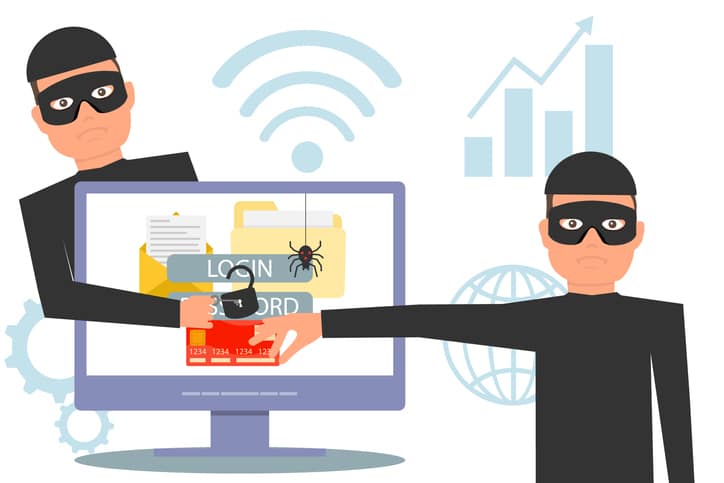Top Data Security Tips to Protect Your Company While Working Remotely
Worried about protecting sensitive business-related information while working remotely? With these simple data security measures in place, you can rest easy.
In times when many business operations can be completed remotely, it’s essential that your team feels comfortable keeping sensitive information protected as they work from home. As telecommuting becomes a popular option for many companies across the US and beyond, data security should be a top priority for business owners everywhere. Whether your employees need to connect to an unsecured Wi-Fi network or lose an endpoint device while traveling, with the right security measures in place you can protect your company’s most sensitive information and your bottom line. Keep reading to learn more.

3 Essential Ways to Protect Business Data When Working Remotely
1. Create a Cyber Security Policy
This is the crucial initial step that every business should follow. If business owners want to make it clear that data security is vital to their company, they must cultivate a culture of safety in the workplace. Even though it may be at the top of your list, there’s a good chance that some of your employees aren’t away that data security is something they should care about. Whether they work directly with customer data or not. If employees aren’t working within the upper levels of the company, they may feel as if data security isn’t their responsibility.
By creating a clear cybersecurity policy, you will help every team member to understand that they should be taking ownership of protecting company data and set clear expectations for those working in-house and remotely. Make sure that all new and existing employees review the policy and sign documentation stating that they understand it clearly and have been given a copy.
2. Ensure Secure Internet Connections
Did you know that using an unsecured Wi-Fi network connection is the most common way to expose company information to a data security breach? While it’s understandable that remote workers are often looking for an alternative to working in their home offices, connecting to any old Wi-Fi network that they happen upon is a dangerous practice and should be avoided at all costs. But that doesn’t mean that remote workers must be forbidden from travel.
To prevent the temptation to connect blindly to an unsecured network, businesses can require that employees use a virtual private network or VPN. When using a VPN, public Wi-Fi networks encrypt the internet traffic of your workers, monitoring for signs of infection as well. However, not all VPNs are created equal. So, it’s essential to do your research when setting up a VPN. If you’re still unsure of which VPN is best, you can reach out to your IT services team for a recommendation.
3. Enforce Strict Password Guidelines
What’s another straightforward way to fall victim to a data security breach? Use a repetitive or straightforward password. All employees from the CEO to the front desk clerk must use strong and varied passwords to protect your company’s sensitive information. Offering password training is a great way to educate your employees on the importance of password security. Additionally, setting up a password manager can help to mitigate this risk. Password managers randomly generate passwords for all employees and stores them safely. There’s no need for team members to struggle to recall complex passwords for each different program they use and helps to prevent repetitive password usage.
Additional Data Security Measures
- Two-Factor Authentication – With this authentication method, employers can require users to provide a username and password, as well as the second piece of information. This second authentication factor could be a secret question, PIN, or secret image identification.
- Encryption Software – Encryption software allows companies and remote workers to protect themselves if an endpoint device is lost or stolen. This advanced software makes it nearly impossible for unauthorized users to access company data.
Contact PNJ Technology Partners Today
Remote work is becoming an essential business practice for many companies around the globe today. But relying on remote workers doesn’t mean you have to jeopardize data security. Interested in learning more? Call (518) 459-6712 or contact us today for more information or to schedule an initial consultation.

